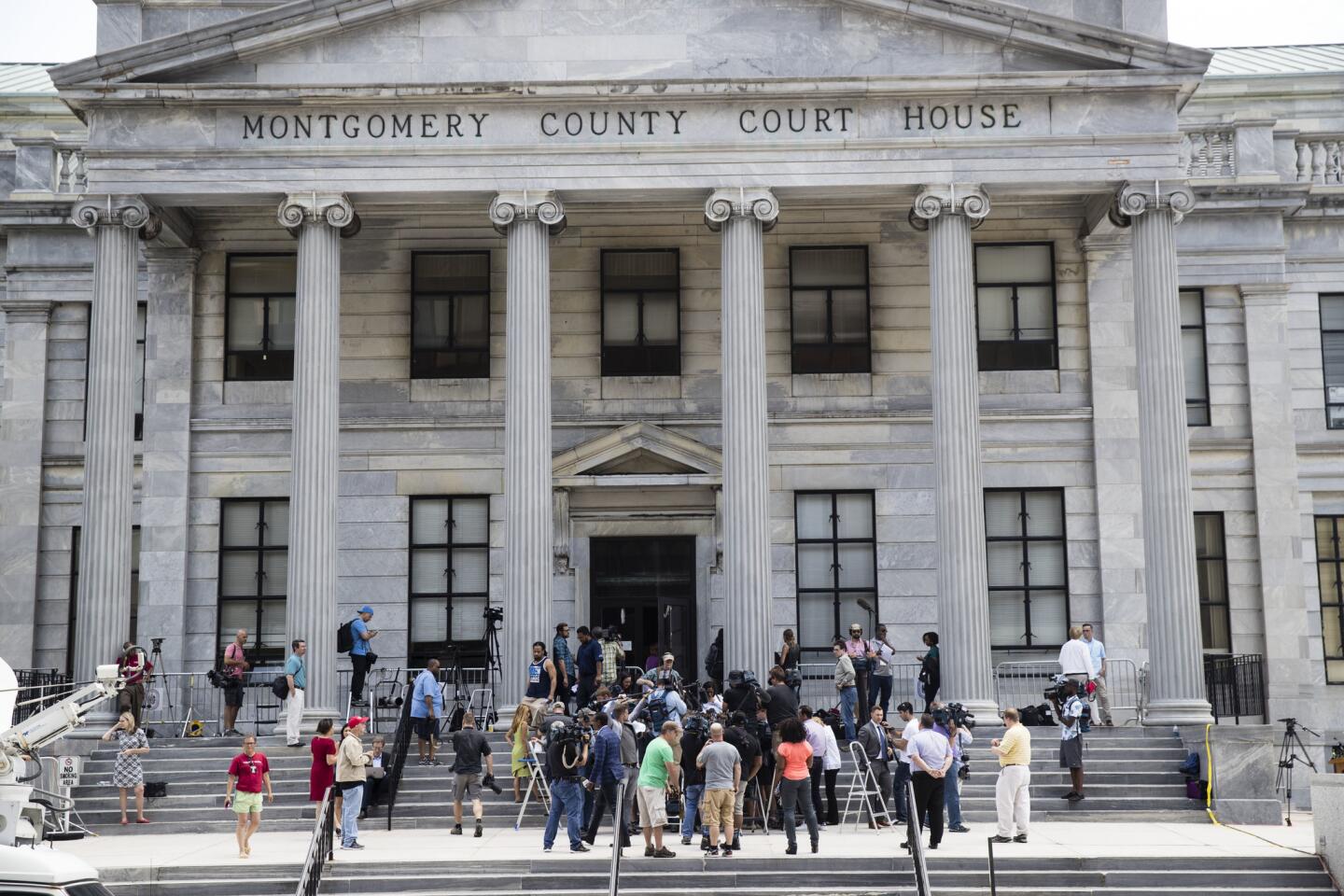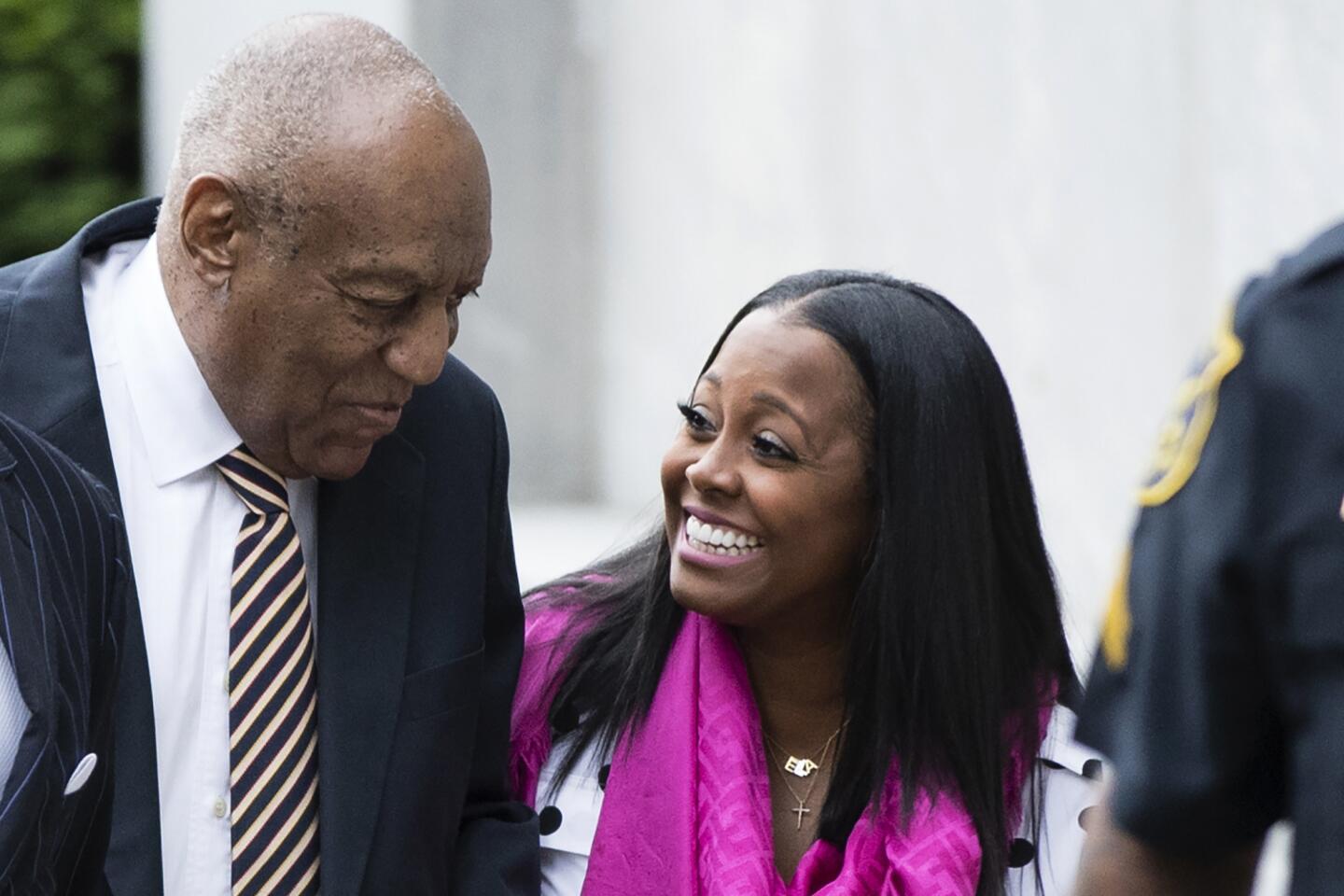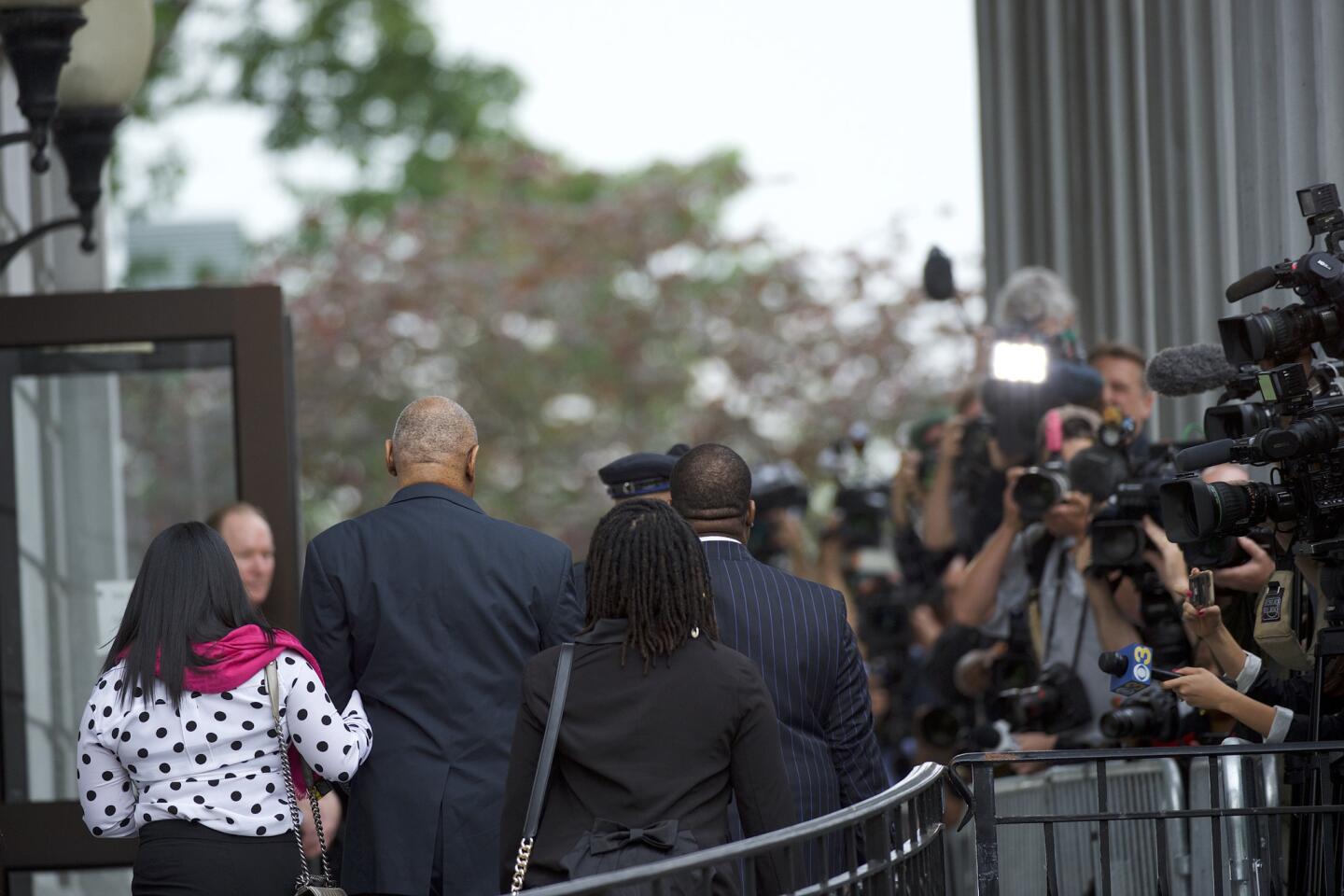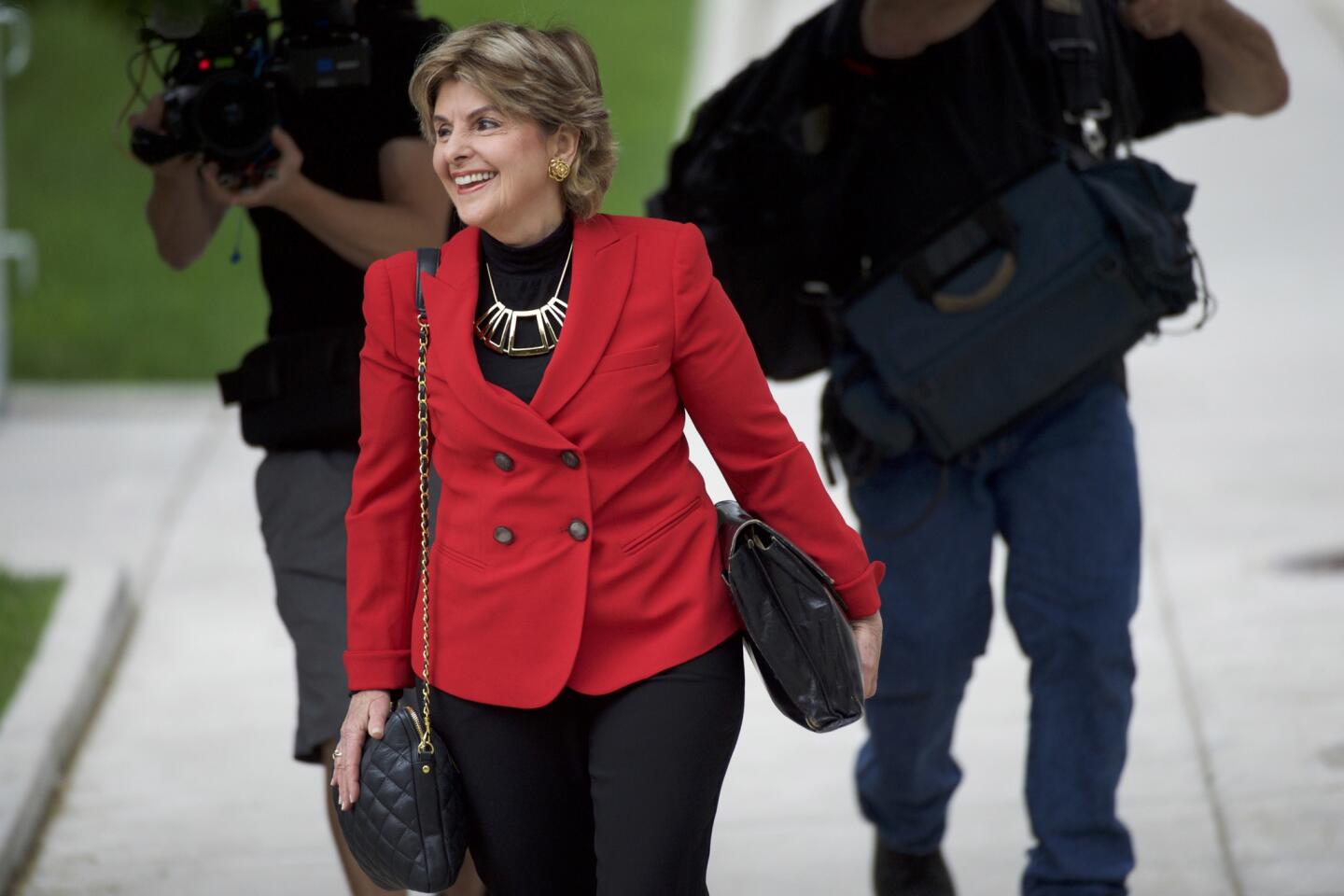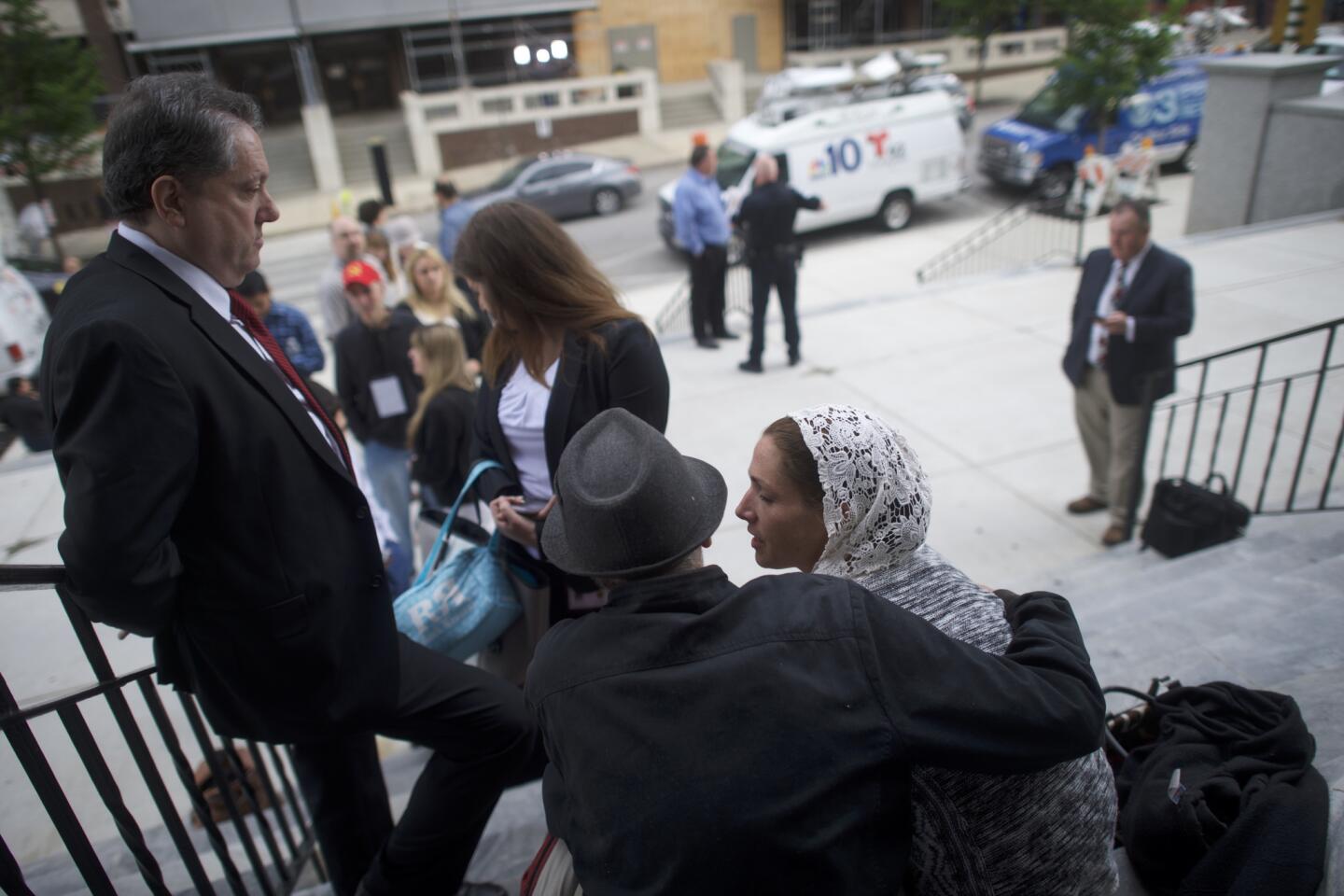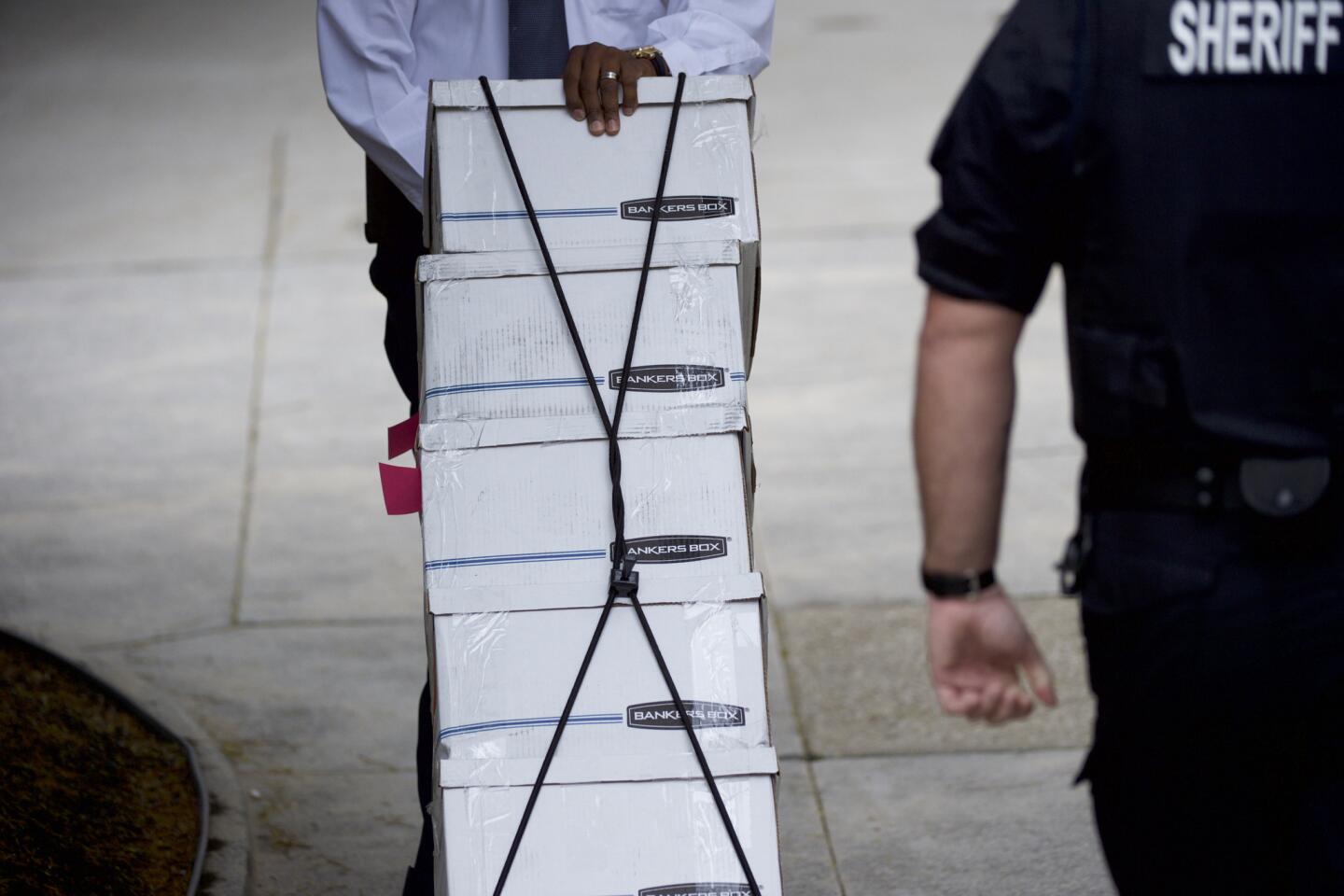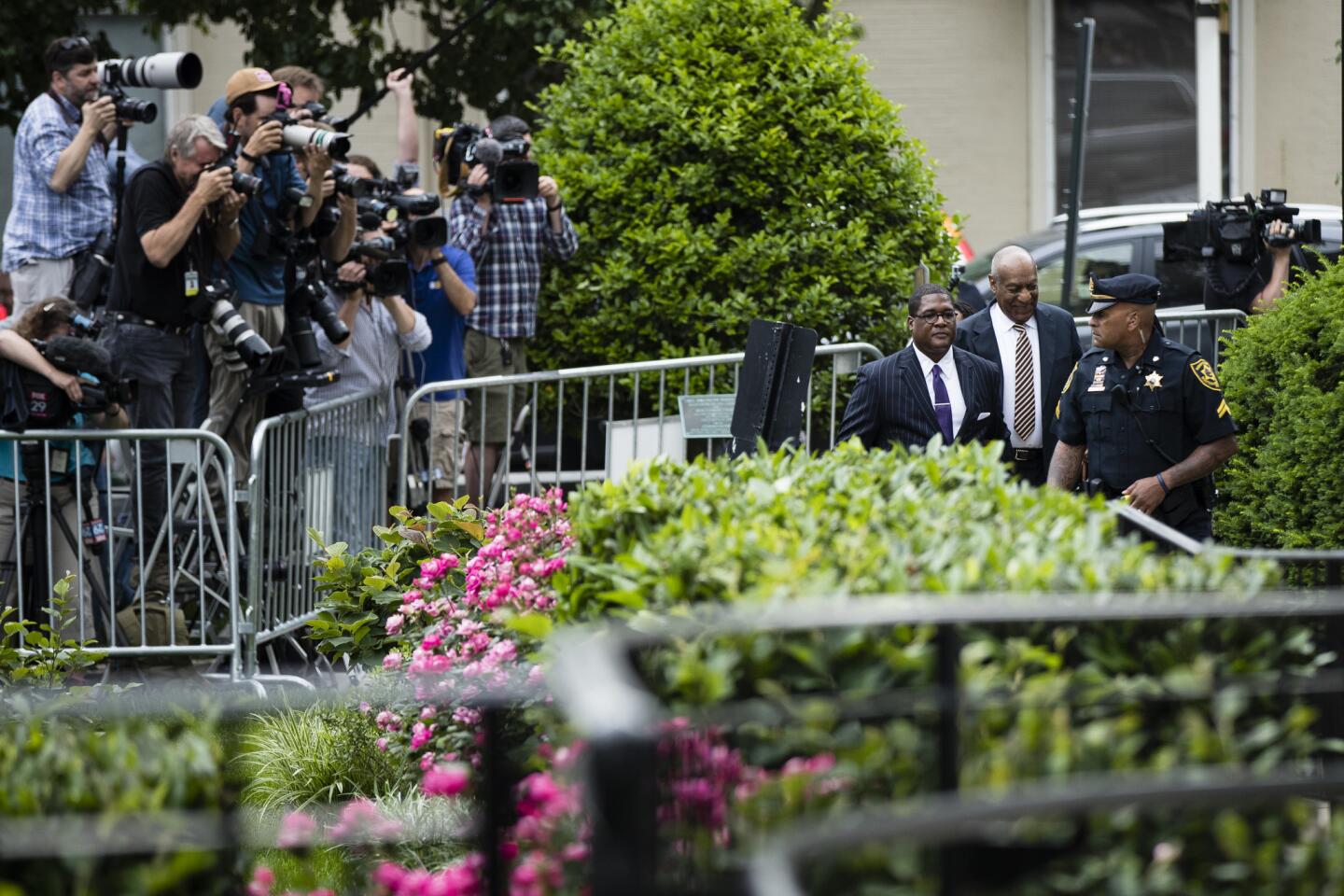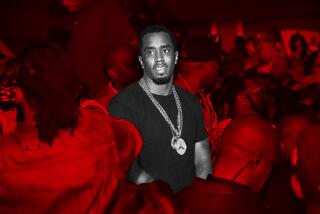Bill Cosby accuser confronts the comedian: ‘I was very afraid’
Reporting from NORRISTOWN, Pa. — Kelly Johnson was a young assistant at the William Morris Agency in the 1990s when Bill Cosby, one of the company’s biggest clients at the time, began showing an interest in her.
Cosby would call her home to chat, recommend doctors for an ailing relative and even host Johnson and her family at his performance in Las Vegas, she told the court Monday at Cosby’s sexual assault trial.
One day in 1996, after Cosby had invited Johnson to his bungalow at the Bel-Air hotel, he urged her to ingest a mysterious white pill. Feeling “intimidated,” Johnson said, she swallowed it. When she woke up, her dress was pulled up and he was compelling her to touch him sexually.
“I didn’t understand a sense of time,” she said. “I felt like I was underwater.” After hurrying out, she found herself on the outs with Cosby. Not long after, she overheard him telling her boss that Johnson should be fired.
Johnson’s testimony was part of an emotional, combative and at times bizarre first day of testimony at Cosby’s trial on charges of indecent assault involving another woman, former Temple University basketball coach Andrea Constand.
After more than a decade of allegations that have fractured the career of one of America’s best-known comedians, a Cosby accuser confronted her alleged attacker in criminal court for the first time.
Cosby has been charged with three counts of aggravated indecent assault stemming from the Constand incident in January 2004, in which both sides agree he penetrated her with his fingers but disagree on whether there was consent. At stake is a maximum 10-year prison term for Cosby. Also on the line: the 79-year-old entertainer’s legacy, which could be further rocked by the trial’s outcome.
Prosecutors in opening statements laid out a portrait of Cosby as a sexual predator who used his reputation to win a woman’s trust, then assaulted her when she was powerless to refuse.
“This is a case about a man who used his power and his fame and his previously practiced method of placing a young, trusting woman in an incapacitated state so that he’d sexually pleasure himself, so that she couldn’t say no,” Montgomery County Assistant District Attorney Kristen Feden told jurors.
Prosecutors squared off with Cosby lead attorney Brian McMonagle over the relationships Johnson and Constand each had with the once-popular entertainer — disputing whether the two women were simply trying to get close to a powerful man, or whether he was criminally exploiting that power.
Johnson was called by the prosecution to try to establish that Cosby had a playbook he also used with Constand. In direct testimony, she painted herself as a timid assistant, working for Cosby’s late agent, Tom Illius, when she met and became enamored with the comedian.
“I had the utmost respect and admiration for him based on what millions of other Americans, especially African American folks, thought of him,” Johnson said. She was not seeking to be an actress, she said, and was simply trying to hold on to her low-level job at the talent agency when she was summoned to Cosby’s Bel-Air bungalow. Too scared to turn him down, she went, and said she found herself the victim of a sexual assault.
On cross-examination, McMonagle drew a very different picture, in which Johnson had a much closer relationship with Cosby than she was letting on, had taken money from him for doctor and salon appointments and was interested in an acting job he could facilitate.
McMonagle also sought to create an impression of Johnson as a freewheeling partier for whom taking a pill was part of a larger lifestyle, not a moment of victimhood.
The cross-examination often evoked 1990s Hollywood, particularly an unusual sequence in which McMonagle asked: “Isn’t if a fact you were doing drugs with Maxi Priest in the ’90s?” noting that it was the R&B star who fathered her son, born in 1992.
Though some of the basics of Johnson’s story had been revealed in media accounts and earlier court filings, her testimony Monday contained new details—and not just about Priest. It included an account of her time at Cosby’s home workshopping an acting scene that was to end with the two kissing, which she said she resisted. She also told how she had pretended to swallow the pill that day at the Bel-Air bungalow before Cosby discovered she hadn’t and urged her to do so.
“I was very afraid,” she said, through tears. “He was the biggest celebrity in the world at the time. And it was just me. It was just me.”
The day’s testimony marked the defense’s first opportunity to rebut the criminal claims in court.
McMonagle disputed that the incident in the bungalow resulted in nonconsensual sex, citing notes he had from a deposition Johnson gave in a civil suit against William Morris. When Johnson didn’t consent, McMonagle said to her, Cosby “got up and said it’s OK and you drove home, isn’t that right?”
Johnson did not offer a substantive reply.
McMonagle took frequent opportunities to suggest Johnson was less a lone victim than part of a well-oiled legal operation, often mentioning Gloria Allred, the Los Angeles attorney who represents Johnson and several dozen other Cosby accusers. “Did she tell you to say that?” he said repeatedly to the witness, gesturing to Allred, where she was seated among spectators in the front of the courtroom.
McMonagle also portrayed Cosby’s contact with Constand as purely consensual.
“‘We had cognac and brandy and sipped it in front of the fire. Romantically.’ I didn’t hear that [in the prosecution’s opening],” McMonagle said of the Cosby-Constand interaction that night. “She wasn’t paralyzed; she wasn’t incapacitated,” he added. “He made her breakfast” the next morning.
Feden said that the incident that night in 2004 came after Constand had been led to believe that Cosby, more than 35 years her senior and a storied figure on the Temple campus, would be giving her professional guidance.
“The sad reality of it is she thought she was receiving mentorship and career advice,” the assistant prosecutor said. “Her intentions were very, very different than his.”
Feden sought to preempt the defense’s questions about why Constand waited a year to come forward and instead maintained contact with Cosby during that time; she said Constand was confused and ashamed.
But McMonagle seized on that point.
“After the so-called paralyzing and drugging and assault she called him — there were 72 phone calls. She called him. Fifty. Three. Times,” he said. “They spoke 30-40 minutes at a pop. Their relationship continued.”
Cosby entered the court about 45 minutes before proceedings began, flanked by several people, including Keshia Knight Pulliam, who played Rudy on “The Cosby Show” and has been a supporter of her former co-star.
Wearing a dark jacket, Cosby appeared alert and engaged throughout a series of procedural motions that preceded opening statements, then leaned forward with little expression on his face as Feden described the night of his sexual contact with Constand in granular detail. At one point during the description, McMonagle put his arm around Cosby in a gesture of comfort.
The jury is made up of seven men and five women, with six alternates, drawn from a pool in the Pittsburgh area several hundred miles away. The defense argued a jury from across the state was less likely to be biased by the 2014 county election that brought Montgomery County District Attorney Kevin Steele to office, in which his pledge to prosecute Cosby was a campaign issue.
The question of jurors’ prior beliefs has been a focal point in a case that’s so high-profile, and long-running, that many Americans have already made up their minds about the defendant. The judge, Steven T. O’Neill, sought to dissuade jurors from drawing on their own views.
“You cannot permit sympathy, prejudice, bias for any witness, for the defense, for anybody on this case to divert from [your] sworn duty,” he said. “Each of you must keep an open mind throughout this trial.”
Twitter: @ZeitchikLAT
UPDATES:
4:35 p.m.: The story was updated with initial testimony from the afternoon session.
11:05 a.m.: The story was updated throughout with staff reporting.
This story was originally published at 7:05 a.m.
More to Read
Sign up for Essential California
The most important California stories and recommendations in your inbox every morning.
You may occasionally receive promotional content from the Los Angeles Times.
